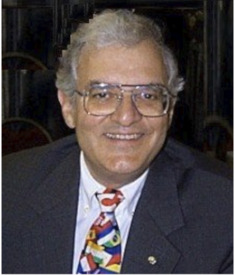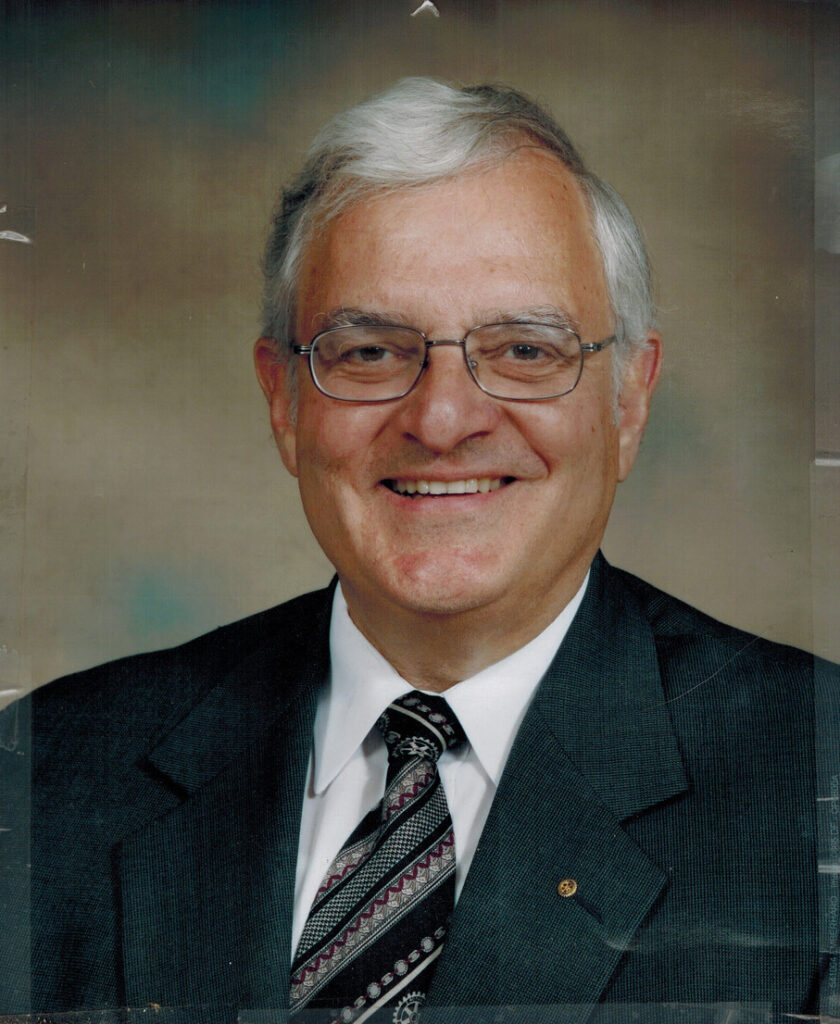A Tribute to John Eberhard
January 10th, 1945 – November 25th, 2024
It is with sadness that we mark the peaceful passing of National Council Member, John Janes Eberhard, at the London Health Sciences Centre, in his 80th year, a pioneer of organized recreational canoeing in Canada. In cahoots with Kirk Wipper, Ron Johnson, John Latimer and Claude Cousineau—but always the instigator and pot-stirrer—John was instrumental in founding the Canadian Canoeing Association (CRCA) in 1971, which morphed into the Canadian Recreational Canoeing Association in 1975. The effort was to unify recreational paddlers and recreational paddling associations from coast to coast to coast, to give them voice on the national and international stage and, eventually, to standardize how canoeing, in its various forms and iterations, was taught.
John was a committed paddler with roots in Temagami, whose journeys by canoe were eventually recognized with the CRCA’s “Canadian Voyageur Award” signifying canoe trips in every Canadian province and territory. As the story goes, while planning a canoe trip in 1970 or so he was frustrated by the fact that there was no national organization in the country supporting and promoting recreational canoeing. His original impulse was to bring together a clutch of committed paddlers and campers in Ontario and then to invite those involved in recreational paddling organizations throughout Canada to come together to build an umbrella organization that would not conflict with what the provincial organizations were doing but provide a forum for discussing matters of common concern and interest.

John was the founding president of the Canadian Canoeing Association (1971-1975) and served a variety of roles on the board of the CRCA for decades, including Secretary-Treasurer and Chair (1980-1986). For years, the headquarters of the CRCA was John’s law office in London. That was the case until 1994 when, again with John’s leadership, the CRCA was able to create a permanent “Home for Canoeing” on the Rideau Canal in Merrickville, named after his long-time partner in all things canoeing and camping, Ron Johnstone.
Unfortunately, in 2007, with shifting demographics, changing recreational proclivities, and with provincial and territorial paddling organizations growing in stature and in strength, the CRCA ran into difficult fiscal and organizational circumstances, forcing its board to retire the idea of having provincial and territorial paddling organization representatives under one organizational umbrella, and to sell the Ron Johnstone Paddling Centre.
Happily, from the ashes of the Canadian Recreational Canoeing Association a different national canoeing organization, called Paddle Canada, was incorporated in 2006, which continues to carry on many of the original goals of its predecessors. However, without John Eberhard’s dogged belief that connecting paddlers nationally was a worthy thing to do, none of this would have happened.
In the years leading up to his death, John worked hard to pull together all of his papers and memorabilia with a view to writing a book all about what he called the “renaissance of recreational paddling” that began in 1971. The book, sadly, will not be written, at least not by John, but his work in organizing the emphemera of more than a half century of work on behalf of canoeists from coast to coast to coast has resulted in a contribution to the archives of the new Canadian Canoe Museum that will be available to paddlers, scholars and researchers who come along in the future. In this collection are the minutes, going back to the early 1970s, of all of the meetings and all of the shenanigans that went on, with all of the characters with whom John, the leader and instigator, shared committee and board tables throughout the country. And in those papers are some surprising things to be found, not least minute-by-minute of the significant incubator role that the CRCA played in the formation and development of the Kanawa International Museum of Canoes, Kayaks and Rowing Craft which, committed paddlers know, eventually became what is now the Canadian Canoe Museum.
I’m not sure how many people know that the CRCA had a number of ad hoc committees or “task forces” dedicated to various topics, including the “History and Archives Task Force,” which was led by the inimitable Kirk A. W. Wipper. Like Ron Johnstone and John Latimer, also CRCA founders, Kirk owned a summer camp for boys. Kirk’s camp, Kandalore, moreso than the Kilcoo or Camp White Bear, was dedicated not only to canoe tripping but also to the history of canoes and canoeing. And that, in fact, Kirk had been collecting canoes and canoe lore, since he bought the camp back in 1957.
Kirk did not attend the 1975 Annual General Meeting of the CRCA, held December 5-7 in Calgary, Alberta but his report was read into the minutes that included news that the Kanawa Museum had in the previous year been turned into a foundation but that “there was an obvious need for funds for more acquisitions and that Kirk was hoping the foundation status would assist with these new projects. The minutes go on to say, “The museum now has 300 canoes and kayaks housed in the new addition to the museum which has recently been completed (log cabin style) under the direction of Mr. Alan Mackie of Prince George, British Columbia. New fire protection equipment is to be installed.”
Two years later, in the minutes of the 1977 CRCA AGM, Kirk is present and personally thanks the board for the help in acquiring items for the foundation. There is talk of an audio visual display that was created with funds acquired for the museum through the CRCA and, with this proprietary interest showing in yet another way, John Eberhard essentially badgers Kirk to get to work on protecting this growing collection of priceless wooden canoes that are in a wooden building a long way from the nearest fire department. The minutes say, “Mr. Eberhard requested Mr. Wipper to prepare a paper on the badly needed fire system as to need, type and cost so this could be circulated for possible financial assistance i.e. Winontario Grant.”
The following year, 1977, the History and Archives Task Force report to the CRCA AGM in St. John’s, Newfoundland, says that Kirk Wipper was unable to attend due to lack of funding but, as if to emphasize John Eberhard’s call for action on a fire suppression system for the collection, it is noted that the restoration workshop on the property at Kandalore had been destroyed by fire. It was at that point that one of the board members explained to the others that this type of task force doesn’t really have a place in a recreational canoeing agenda. But somehow the History and Archives Task Force and the connection between the CRCA and the museum persisted, likely through supporters like John Eberhard.

Six years later, at the 1983 CRCA AGM held at the Bond Place Hotel in Toronto, the History and Archives Task Force report notes that Kirk is no longer the president of the museum but it is clear from the detailed discussion that followed, the CRCA was heavily invested in the success of their friend and colleagues desire to build an international shrine to canoes and silent craft. The minutes note that there were seven areas of significant discussion: “1. Feasibility Study; 2. Planning and Resources; 3. Outreach; 4. Acquisitions; 5. Grants; 6. Publications; and 7. Audio Visual materials.”
And in that same set of minutes, presumably based on the forgoing discussion, there are listed, “suggestions for ways in which the CRCA and Kanawa can co-operate directly with financial support.” These include: “1. Repair and maintenance—fur trade canoes; 2. Research and publication; 3. Photographic recording of the entire collection to be mounted on catalogue sheets; 4. Selected outreach events; 5. Audio visual productions; 6. Restoration and stabilization of watercraft—recognition for CRCA; 7. Assistance—fire protection; Finish—log cabin to use as CRCA Retreat Centre; 9. Assistance—transport of displays; 10. Development of gift shop—profit showing plan; 11. Assistance with fund raising program; 12. Assistance with completion of storage structure.”
Thanks to the acquisitive habits of John Eberhard, who kept all of these records (and much more, including correspondence and a full set of Kanawa magazines, published by the CRCA for its members until they made an arrangement with Rapid Media to have its main publication, Paddler, as a membership perq’), and who, as his days were fading opted, through his Daughter Kelly in Peterborough, to donate these to the Library and Archives of the new Canadian Canoe Museum, we now have in perpetuity a much clearer picture of how organized recreational canoeing in Canada came to be. Only time will tell what else will be revealed in these papers but it’s clear from a quick scan that the friendship and professional relationship between Kirk Wipper and John Eberhard clearly establishes the CRCA as an important incubator of the museum in its early stages.
John’s legacy goes well beyond canoeing, as the many accolades and remembrances of his passing attest. He was a father, a grandfather, spouse (married to Frances for 45 years), private pilot, active Rotarian, lawyer, enthusiastic alumnus of the University of Western Ontario and, latterly, a judge on the federal Social Security and Civil Aviation Tribunals. He was active in his church. He loved to ski and travel, ride his motorcycle, or just kick back at their cottage on Lake Temagami. John Eberhard lived life at full throttle and made things happen. I’m sure everyone associated with the Canadian Canoe Museum would join in sending condolences to Frances, Kelly, Robert, their spouses, grandchildren and close friends. To give John the last word (he liked to get the last word), he concludes his privately published memoir (available here: https://www.bookemon.com/flipread/1029341#book/155) with the following words: “This is where we finish—at the end. A life well and fully lived. I am at peace.”
A celebration of John’s life is happening on Thursday, December 5th at 1pm and will be available online at https://youtube.com/live/iEg1QHSjUU4
James Raffan






